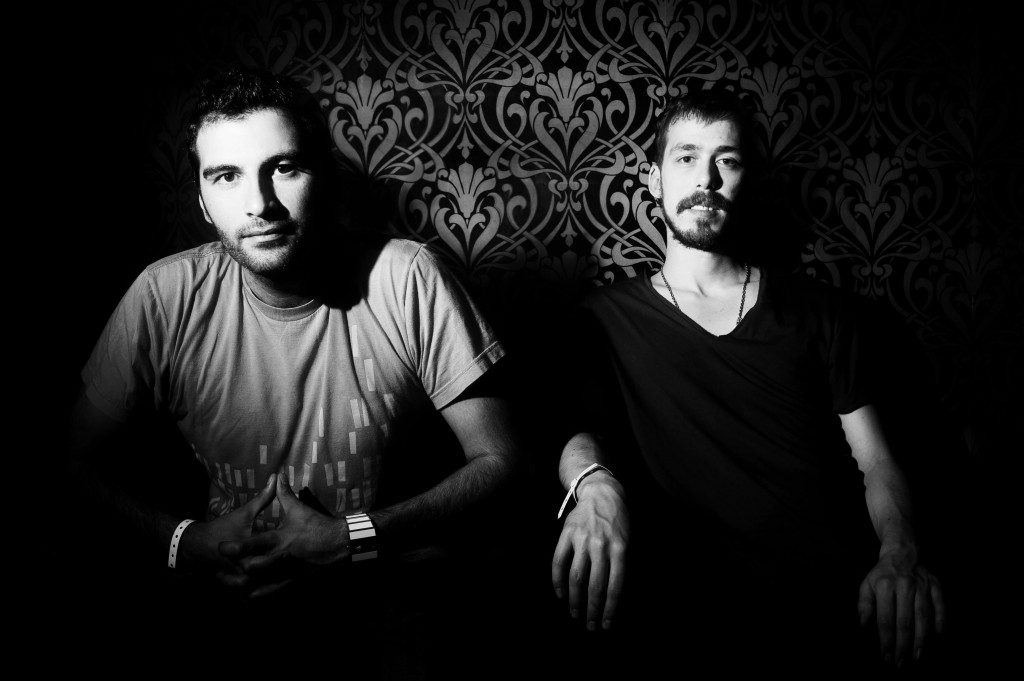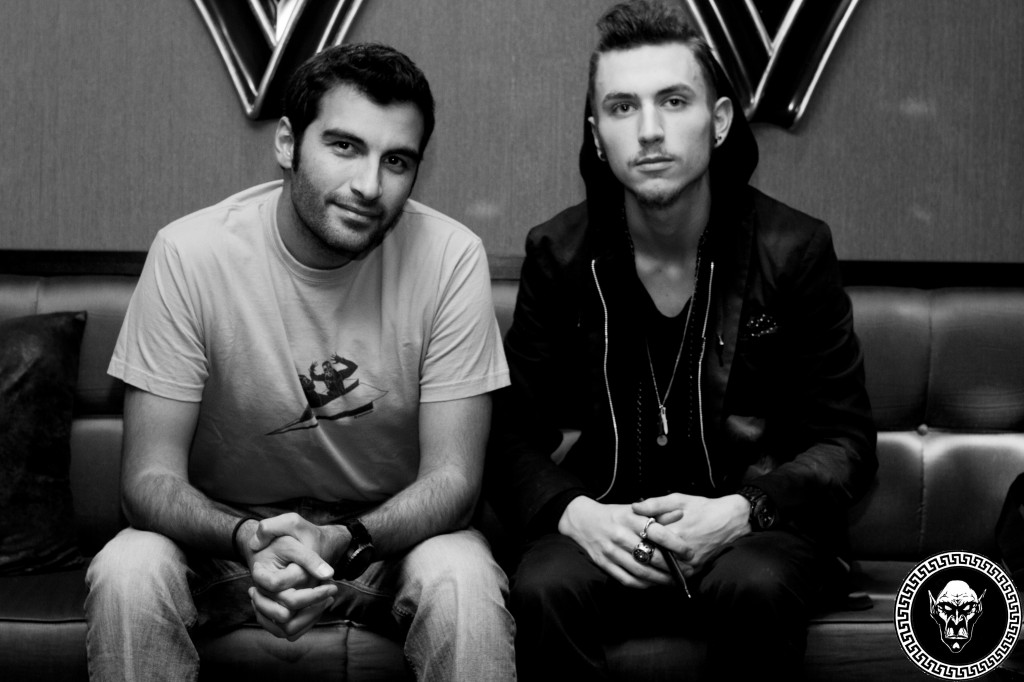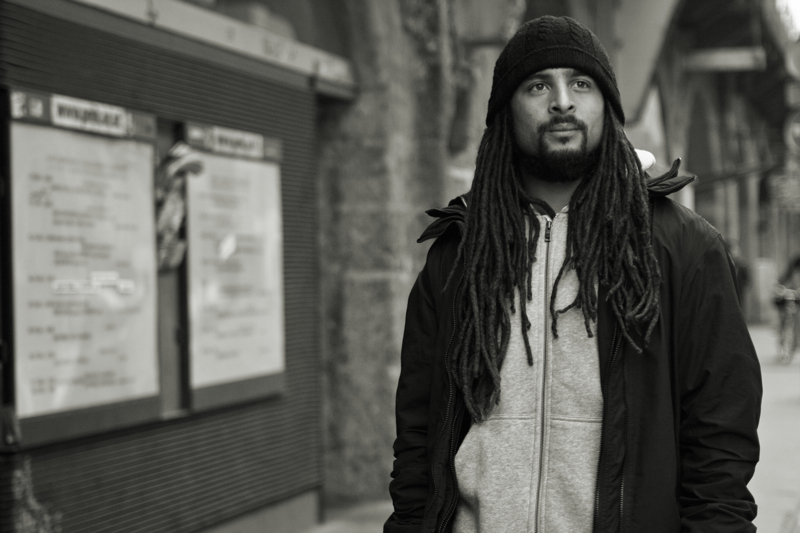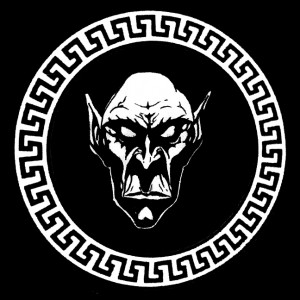New Forms Festival 2012 | Vancouver, British Columbia
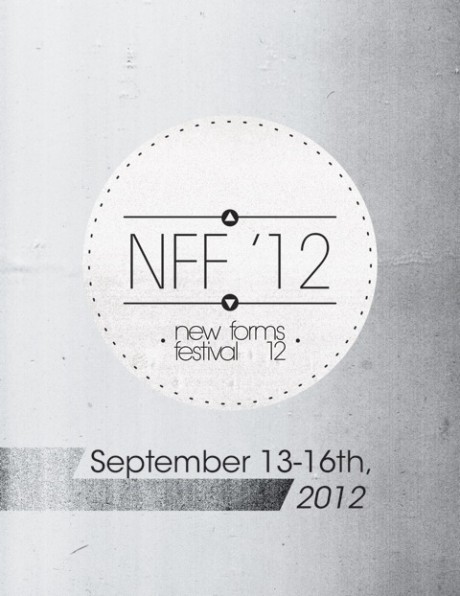
If you’ve been keeping up with us here at LOW-LIFE, you’re probably already aware that we have been festival hopping, cross-continentally, over the course of the summer. So far, we have collectively managed to hit MUTEK (Montreal, Quebec), Sonar (Barcelona, Spain), 10 Days Off (Ghent, Belgium), Tomorrowland (Boom, Belgium), Shambhala (Nelson, British Columbia) and Outlook (Fort Punta Christo, Croatia). Next on the docket, we have Vancouver’s very own New Forms Festival , a cultural hub dedicated to exploring art, media, and electronic music.
“[New Forms Festival is] a survey of the electronic scene that rivals Montreal’s internationally acclaimed MUTEK.”
(via
The Georgia Straight
– read more
here
)
Now, if you have ever had the pleasure of attending the now Montreal-based festival, you would recognize that the Georgia Straight scribe has made a mighty bold statement. However, having attended both (LOW-LIFE paid a visit to New Forms ’11 last September), we couldn’t agree more.
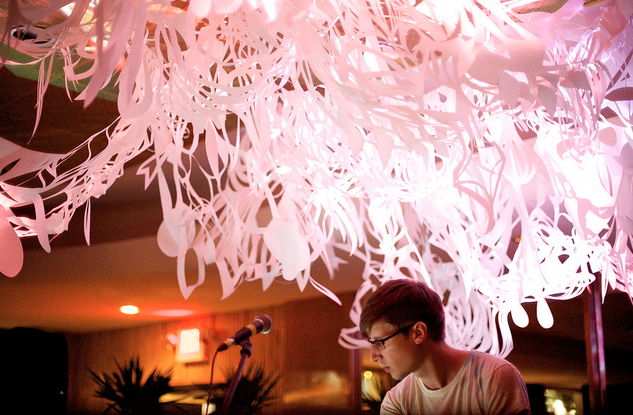
[Teen Daze, New Forms 2011]
This year is New Forms’ 12th instalment and, arguably, the detail-oriented organizers may have very well fashioned the most striking line-up yet. This year, some of the most admirable forward-thinking artists, such as Teebs , Actress , Kode9 , Sinjin Hawke , and Canblaster , will take to the decks. Furthermore, like MUTEK , New Forms places an emphasis on young and local talent, recognizing the importance of providing a “platform for artistic growth.” So, spectators will also have the pleasure of catching the Vancouver-based Jellyfish Recordings crew – Headspace , Nick Wisdom , FALCONS , Jolin Ras , and 8prn – in action. Just take our word for it- it would be a mistake to sleep on any of these acts.
The theme this year will revolve around “Living Labs” and you’ll have to join us there to understand how that will manifest in both visual and aural form. In that respect, we know as much as you do. A Festival Pass, which fortunately won’t break your wallet (it’s only $60 ), covers you for the entire weekend, French Electro Showcase and A/V installations included. Individual passes can be purchased as well and are all available at the official site here.
If you need any more incentive to attend, we’ve compiled a mixtape, available below, featuring a blend of some of the sounds you can expect to hear at New Forms 2012. We’re looking forward to seeing your faces there.
Download || New Forms Festival 2012 Promo Pack [zip]
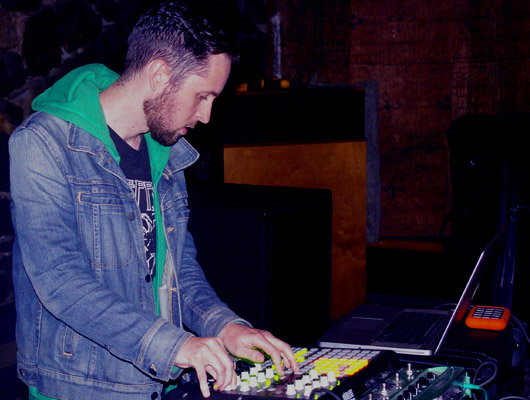
[Nautiluss, New Forms 2011]
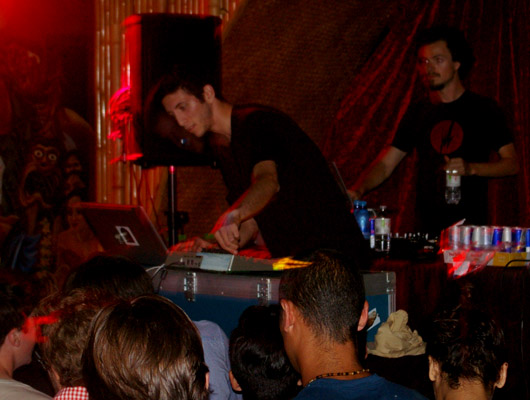
[Shlohmo, New Forms 2011]
alh
MUTEK | Montreal 2012
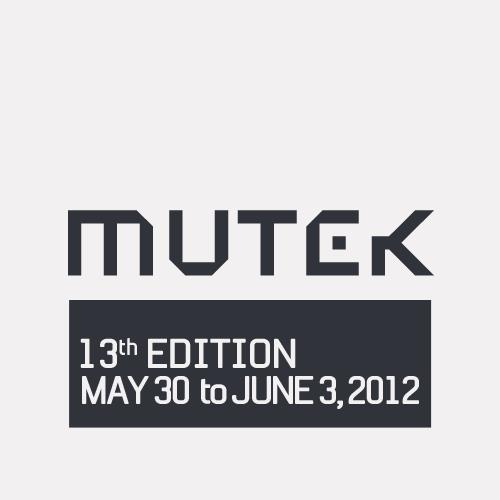
MUTEK is just around the corner (the official festivities begin tonight) and it’s safe to say that anticipation is running high, here in Montreal. If you’re not already familiar, MUTEK is an international festival organization, founded in the year 2000. It’s centrepiece: the presentation of its annual namesake festival, held in Montreal, which thoughtfully showcases the strength and value of both electronic music and the digital arts. This year is MUTEK ‘s 13th instalment.
“Over 70 acts will converge on Montreal from May 30th to June 3rd, among them respected pioneers, hotly tipped emerging artists, adventurous sonic manipulators, and a significant number of Canadian artists who represent the wealth of digital creativity currently at work in this country.”
(via
MUTEK
)
The 13th edition, as it has done in the past, will provide a platform for some of the most forward thinking minds in digital creativity to demonstrate their talents. This year’s spectators have the opportunity to catch some of our unabashed favourite names: Nicolas Jaar , Shlohmo , Salva , Kode 9 , Valentin Stip , Prison Garde , and so many more, as well as a number of experimental art installations that we’re looking forward to exploring (take the CineChamber for example).
“MUTEK is an immersive journey, with many levels at which to explore the artistic contours of its many creative scenes.”
Whether you manage to be in attendance or not, we’ve put together a little offering of just some of the sounds attendees will be exploring during the next few days. The tracks included are from either the recent or far-gone past. Check back for some exclusive updates in the near future.
We hope to see you there-
Download || MUTEK 2012 Promo Pack [zip]
Tracklist:
And I Say (ft. Scout LaRue & Will Epstein) – Nicolas Jaar
Hot Boxing the Cockpit – Shlohmo
Wake Ups – Salva
Babylon – Kode 9
Goodbye (Instrumental) – Apparat
High For This (Sibian & Faun Bootleg) – The Weeknd
Sea of Pulses – Tim Hecker
Arose – BNJMN
Anytime Will Do – Valentin Stip
Parking Lot – Prison Garde
Whit Dub – Alex Smoke
Best Of (Deniz’s Freestyle Version) – Deniz Kurtel ft. Mykle Anthony
Beat 26 – Jimmy Edgar
International Fires – Shackleton
T.P.Ø. (Rumpistol Remix) – Acustic
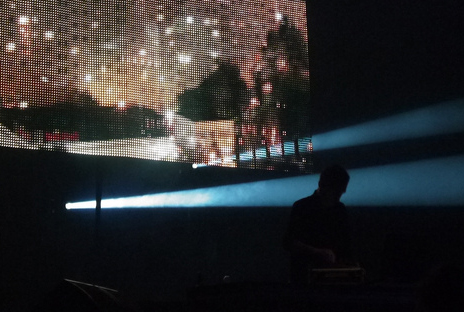
[Anstam, MUTEK 2011]
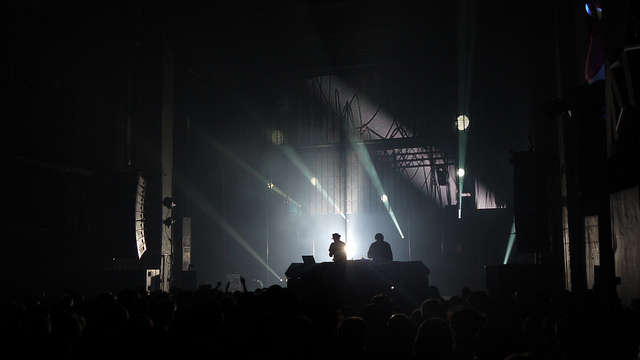
[Modselektor, MUTEK 2011]
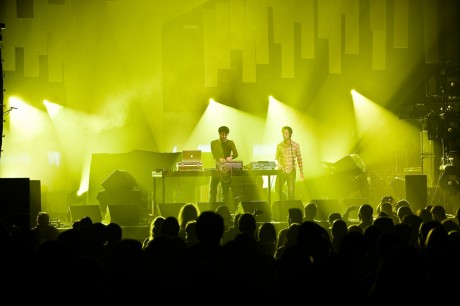
[Four Tet, MUTEK 2011]
alh
d’Eon | Al-Qiyamah

The work of experimental Montreal-based composer, d’Eon dates back to the early 90s, which perhaps exacerbates the (unsought) parallels that are often drawn between his voice and Phil Collins’. In regards to this “problem,” he once commented, “It’s really funny, I actually had no idea that my voice sounded like Phil Collins when I started out … and then there were a couple of reviews when the new record came out that sort of trashed it for sounding too much like Phil Collins. And I thought ‘Oh man like, damn. I didn’t realize this was an issue.’ I don’t try to sound like Phil Collins. I don’t want to sound like Phil Collins. I like Phil Collins…”
The last we heard from d’Eon was
Darkbloom
, the split 12” that he released with
Grimes
. However, since then, the producer
has been hard at work molding his next release aptly titled
LP
, out June 5
th
on
Hippos In Tanks
.
“Al-Qiyamah,” the first taste of LP , is the closing track of the record, clocking in at nine minutes. In regards to the preferable mindset one should be in when listening to his music, he’s said-
“I mean it doesn’t always come out, but I’ve felt like a lot of my music has sort of an apocalyptic feel. A lot of the new stuff has a lot of double-time kick drums and bass drums. So if you feel like the world is about it end you could probably appreciate it. I really value feelings of dread and anxiety in music. As for a mind state, I’d say it’d be helpful to smoke weed, but it’s not required.”
(via
Leacock’s
)
Download || Al-Qiyamah – d’Eon
alh
Pleasurekraft | Interview
Last month, I was fortunate enough to sit down with Kaveh Soroush of the all mighty duo, Pleasurekraft. We were tucked away in a comfortable corner booth at the regal Intercontinental Hotel in the heart of Montreal’s Old Port. Two minutes into the interview a fair sized contingent of YMCMB strolled past our booth. Kalle Ronngardh, the other half, was hard at work producing at their studio in Stockholm at this time.
LL: Who do you trust to get an honest evaluation of your tracks?
Kaveh: At this point now, its kinda’ like you get to a point when you’re working with your partner where you’ve reached a level where your releasing on labels, and there’s an audience that’s waiting for your music… basically, your seal of approval has already been stamped as soon as you’ve got a couple hits, so once you get to that point, in our case its two people, you’re always sending stuff back and forth. You throw away the first hundred tracks when your comin’ up and you’re learning how to do everything but you get to a point where you trust yourself and trust in the people you’re working with and also now we have management as well so, our management, our agents….I think everyone questions their art when they’re making it. Hopefully you get to a point, where you know its not…well, you hope its not crap (laughs)
LL: Do you release most every track that you work on? Or are there many tracks on your hard-drive that never see the light of day?
Kaveh: There are not a lot of finished tracks that don’t see the light of day, and there are a lot of ”sketches” for tracks that don’t for whatever reason. I mean, we’d kinda’ start on a tangent, Kalle would start something, send it to me, I’d be like “yeah, lets do this,” add something here, send it back to him, and then he’ll kinda work on it some more, and we may realize that the two ideas don’t jive well together. Then its back to the drawing board. We both have slight musical A.D.D., so if we work on something too much, too long, and its not amazing after a little bit its kind of like oh fuck this I’m bored, start from scratch again. You know?
LL: In an interview with Dirtie Clouds in January of 2011, you stated “we like tracks that have a narrative, musically. I want to ask; who, in your eyes, are a couple people that exemplify this?
Kaveh: A couple of people that I’m really into right now… like Mike Vale for instance. He kinda’ has that very visual approach; almost a cinematic one. A lot of Format B ’s tracks I think as well. Its more than that, though. It seems obvious to me that these guys use influences that are outside of electronic music and that’s what makes their electronic music so interesting. It’s really boring when you’re a techno artist, all you listen to is techno, and you make techno. But take for example Format B, for : Yeah, its techno. I don’t play a lot of techno, but I play Format B because their techno has soul. You listen to their records and you know their listening to Jazz, Blues, R&B… it all comes through when you’re listening to their tracks.
LL: To keep on the topic of things Cinematic, you became known, for a while, to be using a SVM1000 Mixer (an audio and/or video mixer). Was this simply a phase on your path to where you are now?
Kaveh: That was kind of early on, because we were trying to work in some visual things, but that mixer (Pioneer SVM1000) is the mixer that Sander Kleinenberg uses a lot, because he does a lot of D/VJ stuff. I went to school for film, so, naturally, I’m into combining visuals with music, but the problem is that that mixer is such a pain in the ass, and its unbelievably expensive. Most clubs don’t have it, or don’t have access to it. To rent one for a club can be thousands of dollars, and that really limits what clubs you can play at. So if we’re lucky enough to get to the point where the touring and booking fees are outrageous, then we can take a mixer like that on the road, but right now it doesn’t make enough sense.
LL: So you are in a bit of a long-distance relationship with your other half, Kalle. Could give our readers a little bit of a rundown on what exactly that means? It seems like you both have stood strong for the necessity of being a duo, and that you both wouldn’t have been able to do this with the other.
Kaveh: For sure, I don’t think either one of us would be where we are without the other person. Now, with the touring thing, we kind of split duties. We have a studio in Stockholm where Kalle works out of. I do the touring and DJing, and he sends me stuff on the road. Since he is stationary in Stockholm he is working on the majority of the production stuff. I started out a DJ around the same time as he started producing, so it also hugely plays to our strengths. Kalle doesn’t really like getting in front of a bunch of people and being the center of attention, but he loves being in a studio working on tracks. I love getting up there and getting a room’s hands in the air. I do love working on the musical stuff a lot also.
We came from two very different musical backgrounds. He started out in a studio doing electronic music, and I started out in rock and metal bands. I started out playing drums then bass then guitar. I didn’t get into electronic music, as in club-electronic-music, until 2002, when I started learning how to DJ.
LL: When your influences are brought up, you guys tend to use a lot of carnival vocabulary. Could you outline your infatuation with these circus-like atmospheres that almost define your sound?
Kaveh: It’s funny because we both just really like that circusy side-showy thing. I don’t know if you watch many David Lynch movies or not, but there’s this kind of exterior that seems like everything’s good in the world, but there is this really dark underbelly that kind of taints the good mood of the film’s exterior. I guess, sonically, that’s what we’re drawn to. I think Tarantula is a really dark track, but then I know a lot of people that call that their “feel-good song.” – which to me is really weird! I think more than just the carnival stuff, its the stuff outside the realm of electronic music that influences us: with Kalle, it’s a lot of good pop stuff. Myself, the first tape I ever bought was Low-End Theory by A Tribe Called Quest . I was really into hip-hop and still am, and am also really into metal and rock. Deftones and Tool are two of my favorite bands. Doing electronic music is such a far cry from that stuff, but it’s still what is closest to my heart.
LL: What tracks and/or artists comprise your personal soundtrack right now?
Kaveh: Well, I really gotta’ stop sweating this guy, but I’m in love with the Weeknd . He’s incredible. But Kalle and I tend to pay more attention to the producers rather than the artists because a lot of people just see the face. For the most part, they just show up to the studio, sing what other people wrote for ‘em, take the paycheque and go home. Thats not a reference to the Weeknd by the way – thats a reference to your average pop icon. Me, I love Kanye West ’s productions. Timbaland we both love. Neptunes we both love. I also really love this guy named Noah “40” Shebib from Toronto. He produces a lot of Drake ‘s darker stuff. I think he’s an incredible producer.
LL: If you were receiving an Oscar right now, whom would you thank?
Kaveh: I would have to say John Acquaviva . He was really supportive, and somewhat of a mentor when we were coming up. There were moments I was ready to call it quits as Kalle and I both had spent years doing this before Tarantula came out – and John was always very motivational. As far as one person from the music scene, it would have to be him.
LL: Thanks for your time Kaveh.
K: Thank you.
Connect with Pleasurekraft:
Facebook | Twitter | SoundCloud | Youtube | Website
Salva & Nguzunguzu | North American Tour
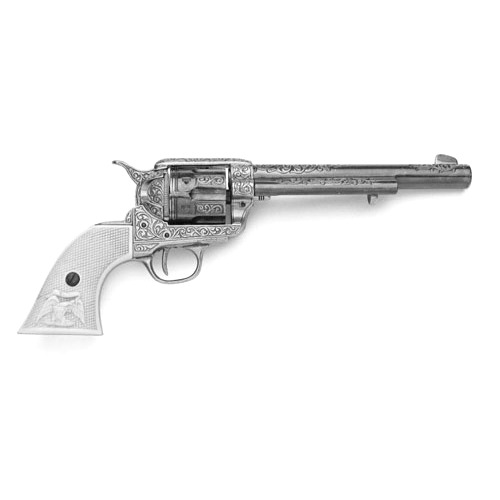
Current L.A. resident, Friends of Friends affiliate, and owner of SF based label Frite Nite — Salva, along with L.A. Production duo Nguzunguzu (Fade To Mind + Night Slugs ), have embarked on a fourteen-date North American Tour, with stops in SXSW and the Winter Music Conference in Miami.
Most noteable to low-lifes alike, are stops in Vancouver at The Waldorf tomorrow (9th), and Montreal on the 22nd at Blue Dog.
If you’ve been following LL, you will have seen the many posts on Salva following his Complex Housing album, more recently following his Yellobone EP release (which included remixes by Shlohmo & 2KWTVR and LOL Boys), and most recently in Wolfey’s latest Bootleg Mixtape .
See you there.
Sincerely,
KO
Mala | Interview
Escaping the frost-biting winds of Montreal’s Old Port at the world’s hottest sub-zero festival, Igloofest , I was blessed with opportunity to converse with a legend in the sanctuary of a booze-riddled trailer, heated with its own external generator. Member of Digital Mystikz , co-founder of DMZ , and creator of Deep Medi , Mark Lawrence is one of the few bonafide pioneers of a genre we’ve come to know and love. Take your time and digest his teachings because it is a veritable rarity to learn a history from the mouth its author.
LL: What were you looking forward to coming to Montreal?
M: When I play shows, its always the same things really. You never know what to expect in places, so. The reason why I enjoy doin’ what I do is because of people and because of music. And its about bringing them two together. So that’s why I enjoyed comin’ here. I knew it was guna be really cold as well.
LL: I can see you that you brought your jacket.
M: I actually bought a jacket at the airport. Cus it had some 50% sale on.
LL: I didn’t know you could buy jackets at the airport.
M: It was in Belgium actually I bought the jacket. Lucky I did cuz I knew it was gunna be cold out here, but yesterday was cold man.
LL: Balls cold.
M: Yeah.
LL: Anyway, I’ve heard from a little bird called the internet that you recently, or are planning to go down to Cuba with your friend, Mr. Giles Peterson . I was wondering what’s going to come from that Cuban influence.
M: Um. I went to Cuba twice last year to work on this project. I worked with a guy called Roberto Fonseca and his band. If you check this guy out; If you check a lot of musicians out in Cuba, their ability to do what they do is unbelievable. Overwhelming actually, because I don’t really see myself as a musician.
LL: No?
M: When I get on the computer and make music, to me, its like playin’ computer games. Ya know, I’m from that Nintendo generation.
LL: Donkey Kong, Super Mario..
M: You know what I’m sayin’. I see music in maybe a different way from those guys because they understand music in terms of it being pitch perfect as well as musical scales and those things there.
LL: They’ve been clapping the clave since they were in diapers.
M: Ya man, unbelievable. So you know what I mean? I didn’t know what to expect. And I still don’t know really what to expect. Cuz, you know, the album’s still building. So, you’ll just have to wait and see.
LL: We most certainly will. So how did you start up that relationship with Giles?
M: Like most of the things, just through music. It reaches people and, ya know, someone like Giles, he’s championed so much music over the years. You know, that guy. When you see his record collection… And I know for a fact that I’ve probably only seen a quarter of it. It’s ridiculous. And I was very lucky that he invited me a couple of times to his Radio One show and I did a Brownwood’s podcast with him. And yea, just bouncin’ like that. Ya know what I mean?
LL: Yea.
M: He’s been doing this work in Cuba.
LL: Mutual respect.
M: Yea, its just one of those things. Luckily, he decided to bring me with him on his adventure, ya know.
LL: Ya. So, now, who do you find yourself being influenced by? Other than the musicians of Cuba, of course. But, present day, what are you listening to and making music after you listen to it?
M: I listen to so much music and I’m on the road a lot as well, its not always music that influences or inspires me. Its more the experience of people and places and certain things that happen. So, its kind of a difficult question to answer now a-days because, ya know, if you’d go back to when I first started writing music, there could be definite musicians and producers and I could say ‘Yea, I draw influences from these guys.” But now, I’ve been doing it for so long, I don’t even know what happens. This is just what it is, ya know. It’s who I am.
LL: Yea… you see a piece of art. You see a building…
M: You know what I mean.
LL: Absolutely. You mentioned earlier that you could pinpoint things that influenced you back then better than you can now, so what were the things that influenced you?
M: The main thing was Jungle music. You know, I grew up as a teenager early in the 90’s and Jungle was on a lot of pirate radio stations. So when I started hearing hard-core Jungle in ’92-’93 it was that sound there that made me wanna get involved in music, some how. You know what I mean? I didn’t know how at first. It was just something that like kind of just overwhelmed, overwhelmed me. And from that I kept listening and kept searchin’ for new sounds and somehow I just started tinkering, ya know what I mean? But, Jungle was an interesting sound ‘cuz those guys there, they drew influences from everywhere, so you’d hear like a Roots or a Reggae sample in there, or you’d hear a Hip-Hop sample, or you’d hear some Acid, or you’ll hear some Jazz, ya know? You just heard everything. And from Jungle music, that expanded my mind really, and I just started diggin’ deep all over. No prejudice, ya know what I mean?
LL: Absolutley.
M: You neva’ know what you’re gonna’ like so I never not listen to nuffing, whenever someone sends me something to have a listen to. I always have a listen.
LL: What brought you to the co-founding of DMZ?
M: Again, it was just meant to be, really. Ya know, I’ve known Coki and Pokes since I was about 11 years old. We went to the same school. We lived in the same area. So we was always doin’ music from young growin’ up. MC’n. Swappin’ tapes. Goin’ to each other’s yard and jamming. We used to play a lot of parties in the area. At a young age we’d become residents at like, under-18 (‘una-ay-een’) clubs. We’d play with people like Mickey Finn , and Kenney Ken , and Randall , Jumpin’ Jack Frost , and Groove Rider . You know, this is when we were like 14-15 years old. We’d MC for these guys, and we met Loefah when we was about 15-16, and what I found is, you know, you probably find it for yourself, a lot of your friends, your common thing that you all love and how you became friends is music (*big grin). And from then your like-minded and you go on a path together. It was just one of those things. We found that we were in a time in London, where the Jungle thing had changed, the Drum and Bass thing was doing its thing. We used to go to a lot of Metalhead’s parties and that. And it just got to a point when we were all making music and there was nothing really happening. We weren’t interested in signing records to major record labels or anything like that. It was… I always think, its very difficult because when you are creative or whenever you want to present something to somebody, when other people get involved, whether it be a distribution company, a record label, or a PR company, or whatever. You have to be very careful, I think, when you’re coming through, that you don’t get misrepresented. We were very, very conscious not to be misrepresented with we we’re doin’ because what we were doing, it wasn’t this and it wasn’t that. It wasn’t Jungle. It wasn’t house. It wasn’t Techno. It wasn’t Garage. It was this. It was a DMZ t’ing. So it only made sense for us to just start up our own thing and start up our own parties. Ya know what I mean? It was just like that really. Just because, you know, Big Apple brought us through. People, you know, Hatcha , Artwork used to also be at Big Apple Records . Jon that used to own Big Apple Records. You know, we would take our tunes down there, and it was Hatcha that first started cuttin’ our tunes onto dubs. And unfortunately Big Apple closed. They released our first record and about 6 months later they closed. So that’s why we just started, we were gunna do our own thing – press off 500 records and see what happened. It trickled through. I remember goin’ to record shops and people bein’ like, “Nah. We can’t sell this. We don’t know what it is.” So we’d take anotha’ and by about DMZ004, I remember goin’ to Soul Jazz Records, dropped off a box of records, and didn’t even get back home – I was on the underground – I went to go back home, and by the time I got off the train there was a voicemail sayin’, “We’ve already sold out. Can you bring us another box?”
LL: Big day.
M: Yea from then, there was a feeling that people started to understand what the music was dealin’ with. At parties – people would come down to our parties and they would just vibe, ya know. There was a certain type of person that’d come down to the vibe, and that just spread out, ya know? I mean, It was just a word of mouth thing; it was an underground thing. It wasn’t just what we were doin’. It was what Kode9 was doin’. It was what Skream was doin’. It was what Plastician was doin’. And people like Chef.
LL: It was the whole movement.
M: It was everyone. We were all together, all buildin’ tunes. It was like sparrin’ with each other. You know what I mean?
LL: Some competition…
M: Not even competition because I don’t see myself or music as competition.
LL: Friendly…
M: Yea. And I hear someone’s tune and its sick and I’m just like “ Wouahh! Right. Bam! Go back in the studio,” like, “Yeah! Wus’goin’ on?” It was that. It was that. It wasn’t just us four that built DMZ in my opinion. It was everyone that’d come to our dance and brought their friend, or every journalist that said, “Yeah. DMZ is this or that.” Or every photographer that came down and took a picture. You know, DMZ is a universal thing. For everyone, nah mean? No prejudice man.
LL: In that case, Why Deep Medi after DMZ?
M: Well, at that time, I was getting sent a lot of music and I was finding that when I was goin’ into record shops and people would be kind-of wanting to listen to what was coming out of DMZ or what us guys were doin’. I was doin’ youth work at the time so it was just where my head was at the time. If I can help otha’ people with the music that they’re doin’ and share it and spread it out , then I’m goin’ to try to do that. I didn’t want Deep Medi to be a side line of DMZ. I didn’t actually tell people that Deep Medi was my label until about 2 years after.
LL: 2 years after the creation?
M: Yeah. So I just wanted the music to speak for itself. I wanted the producer’s, ya know, their music to be recognised in their own right, and not like, “Oh. Its comin’ from DMZ or Mala, so it must be x, y, z.” So I just wanted it to be clean for them on the label. And I think all them, everyone that’s been on the label has gone and played shows around the world. You know, its just if I can get people out, if together we can everyone out, to be self-sufficient, one way or another, I think that’s a good thing.
LL: A very fucking good thing.
M: Cause no one wants to be doin’ this 9 to 5 grind, doin’ things they don’t enjoy doin’. So if I can help people do what they love doin’ then….
LL: That’s noble of you.
M: Nah man its not like that. Its just the way things worked out. It’s a blessing, you know what I mean?
LL: Yeah. So what do you see in the next 2, the next 5 years, whatever, for this genre that you helped pioneer? What’s out there?
M: I never knew what was comin’. I don’t what’s comin’ now. So, you know, I love what I do. I feel very lucky to be able to do what I do. With that mind set I’ll continue to explore and to keep pressin’ in whatever direction I go, ya know? I try not to follow, n’ah mean. Just go wherever it feels right.
LL: Thanks Mark. That was phenomenal.
M: Thank you.
sam.i.am
L O W – L I F E

